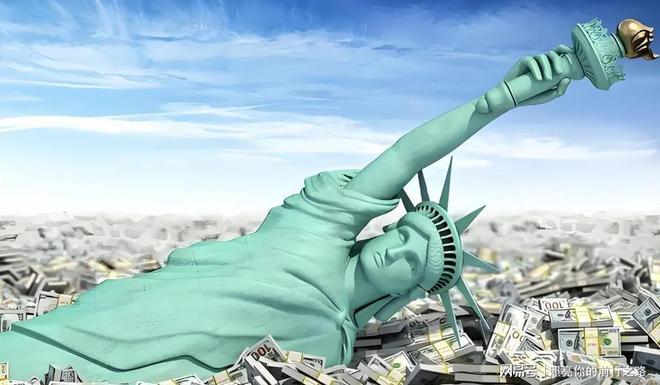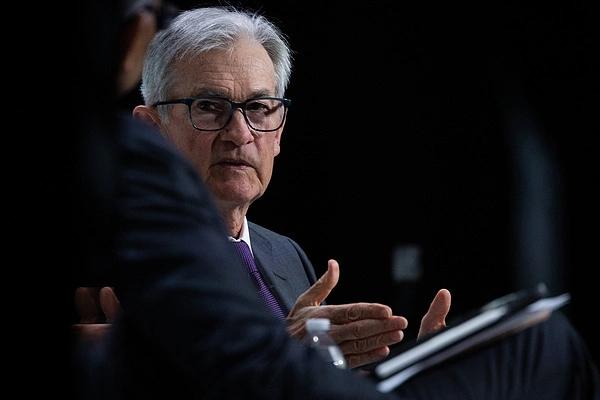
In the current global economic landscape, the trajectory of the U.S. economy has always been a focal point of attention worldwide. Recently, The Washington Post reported on September 21 that a sense of "economic stagnation" is quietly enveloping numerous American households. Behind this phenomenon lie a host of complex factors, and their constraining effect on U.S. economic growth is becoming increasingly pronounced.
From the perspective of borrowing costs, the current U.S. lending environment is imposing a heavy burden on ordinary households. The interest rate hikes implemented by the Federal Reserve earlier to combat inflation have led to a significant surge in interest rates for mortgages, auto loans, and other forms of credit. Take mortgages as an example: current mortgage rates are substantially higher than in previous years, putting home purchases out of reach for many families with homebuying plans. Families that originally intended to improve their living conditions by taking out loans to buy houses have no choice but to put their plans on hold in the face of exorbitant interest expenses. The situation is similar for car purchases—households that take out loans to buy cars face a sharp increase in their monthly repayment amounts, resulting in a reduction in their disposable income.
The sluggish job market has further exacerbated the financial hardships of American households. In recent years, job opportunities in the U.S. have been on the decline. Affected by the economic situation, many enterprises have cut back on recruitment plans or even laid off employees. According to relevant data, the average monthly increase in nonfarm payroll employment in the U.S. has continued to fall in the past few months, and the unemployment rate has also shown an upward trend. Against this backdrop, people's expectations for future income have become extremely pessimistic. Those with stable jobs fear losing their positions at any time, while the unemployed face a long and arduous job search process. This anxiety about income uncertainty has made households extremely cautious in their consumption decisions.
At the same time, the growing economic and political uncertainties within the U.S. have further heightened public anxiety. Frequent changes in trade policies, uncertainties surrounding government fiscal policies, and divisions and struggles at the political level have all left the public lacking confidence in the future development of the economy. Under the shadow of such anxiety, consumer confidence has been severely undermined.
As the core driver of U.S. economic growth, the direct consequence of weakened consumer confidence is a reduction in consumer spending. The U.S. economy is highly dependent on consumption, with household consumption expenditure accounting for a significant proportion of the gross domestic product (GDP). When households cut back on consumption due to various economic pressures, the impact on the overall economy is all-encompassing.
Take the retail industry as an example: many retail enterprises have recently been grappling with declining sales. The foot traffic in large supermarket chains has decreased noticeably, and consumers have become more cost-conscious when shopping. They tend to purchase more affordable products and have significantly reduced their willingness to buy high-end, non-essential consumer goods. The sales performance of durable goods such as home appliances and automobiles is also far from optimistic. The delay or cancellation of such large-ticket purchases by households has led to a reduction in orders for relevant enterprises, forcing them to scale back production accordingly. This not only affects the profitability of enterprises but also further leads to reduced recruitment or even layoffs, creating a vicious cycle of economic decline.
From the perspective of macroeconomic data, the U.S. consumer confidence index has continued to decline recently. The preliminary reading of the University of Michigan's Consumer Sentiment Index for September fell to its lowest level since May this year. This change in data intuitively reflects consumers' pessimistic attitude toward the economic situation. The decline in consumer confidence indicates that consumer spending may further decrease in the future, thereby exerting a strong constraining force on U.S. economic growth.
Looking ahead, the downward pressure on U.S. economic growth cannot be underestimated. The persistent weakness in household consumption expenditure has left enterprises with little incentive to expand production and investment. Reduced corporate investment will directly impact the creation of job opportunities, further exacerbating the difficulties in the job market. At the same time, insufficient consumption may also put downward pressure on price levels, increasing the risk of the economy slipping into deflation.
Furthermore, the slowdown in global economic growth and the instability in the trade environment have also posed external challenges to the U.S. economy. The overseas market demand for U.S. enterprises may be affected, and exports may face obstacles, which will further weaken the growth momentum of the U.S. economy. In terms of domestic policies, although the Federal Reserve has recently adopted interest rate cuts in an attempt to stimulate economic growth, households and enterprises under the cloud of "economic stagnation" may respond slowly to the interest rate cut policy, and the realization of policy effects is fraught with uncertainties.
In conclusion, American households under the shadow of "economic stagnation" are shouldering enormous economic pressure, and this pressure has exerted a severe constraint on U.S. economic growth through the channel of consumption. To break free from the current predicament, the U.S. economy requires the joint efforts of the government, enterprises, and households. Through a series of policy adjustments and economic restructuring, the vitality of economic growth can be rekindled.

On January 9, 2026, a subpoena from the U.S. Department of Justice thrust Federal Reserve Chair Jerome Powell into the eye of a criminal investigation, centered on cost overruns in the renovation of the Fed’s headquarters and his testimony before Congress.
On January 9, 2026, a subpoena from the U.S. Department of …
When Trump announced on TruthSocial a 25% tariff on Iran's …
Recently, according to reports from KGO TV of ABC and CalMa…
On January 13, 2026, the STOXX Europe 600 Index closed 0.2%…
A recent major trade policy adjustment proposed by the Unit…
In early 2026, the Trump administration's cross-border dete…